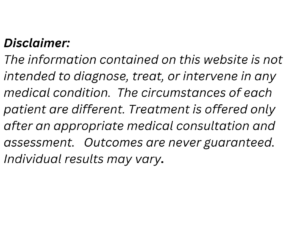Systemic Lupus Erythmatosus (SLE ) is an autoimmune disease affecting the connective tissue. According to the National Resource Center on Lupus, the Lupus Foundation of America estimates that 1.5 million Americans have some form of Lupus. Approximately 90% of patients with Lupus are women. It is reported that 1 in 250 African American women will develop lupus, and it is more common, occurs at a younger age, and is more severe in African Americans.
How Lupus develops
The disease may develop abruptly with a fever or over the course of several months, and even years. In a healthy immune system, the body produces antibodies which destroy unhealthy cells such as bacteria, viruses, and foreign waste. However, lupus causes an overactive immune system to produce auto antibodies which attacks healthy body tissue. This can affect most parts of the body including any organ.
The condition is characterized by the butterfly-shaped malar discoloration on the face. Some individuals also develop lesions on the face, scalp, or other areas of the body
There are several types of lupus, the most common being systemic lupus in which any organ of the body can be affected. Organs which can be damaged by lupus include the heart, lungs, kidneys, brain, and skin. Other areas of the body can also be affected including the blood and the joints. In about 20% of cases, the eyes are affected.
Symptoms of lupus include fatigue, fever, headaches, sensitivity to light and hair loss. People with lupus may also have a butterfly shaped rash across their cheeks and nose. Fatigue is one of the main symptoms affecting about 80% of people with lupus.
How Lupus is diagnosed
Lupus is often difficult to diagnose as the symptoms are like other diseases. In some cases, it is not uncommon for several years to pass before a diagnosis of lupus is confirmed as other diseases may be ruled out first. As symptoms of lupus can come and go it can make diagnosis even harder.
According to the American Rheumatoid Association, there must be four of the eight symptoms present for the diagnosis to be made. ANA antibodies in the blood, joint pain in several joints, butterfly rash on the cheeks, mouth sores, low platelet or white blood cell count, photosensitivity, abnormal cells in the urine, and or seizures. Lupus can affect a person’s activities of daily living (ADL) and their quality of life (QOL) because the disease may affect mental, emotional, and social functioning.
The CDC reports that women with lupus can safely get pregnant, however are considered to have a ‘high risk pregnancy’. Individuals with lupus often develop thyroid health problems, including autoimmune thyroid disease.
According to Johns Hopkins Lupus Center statistics, about 6 percent of patients with lupus have hypothyroid disease, and 2 percent have and overactive thyroid, or hyperthyroidism.
How Chinese medicine helps with Lupus
As is typical for Chinese Medicine Theory, there are differentiations of the disease based on the symptoms and other diagnostic criteria such as lesions, butterfly rash, edema, and bleeding conditions. Symptoms are managed and improved health are achieved using a combination of customized Chinese herbal prescriptions, nutritional support, supplements as needed to replenish deficient nutrients, especially Vitamin D, B-12 and other minerals. Having optimal Vitamin C levels, Glutathione and B-6 will help to bolster and support a strong immune system.
Most of us know at least one person suffering with the challenges of living well despite having a diagnosis of lupus disease. We have many modalities in our medicine bag, to help you live a healthier and more vital life, even with a lupus or other autoimmune disease diagnosis.
If you or someone you know is suffering with IBS, we are here to help.
If you still have questions or need more information, give us a call at (760) 637- 5069 or email us and we’ll be happy to have a conversation around how we may help.







